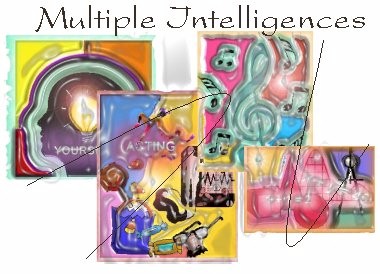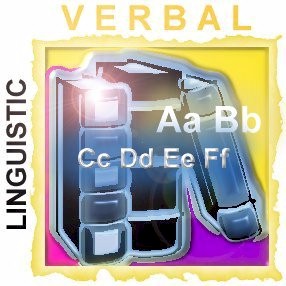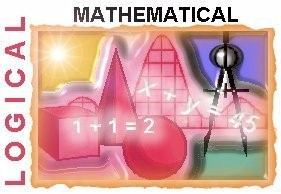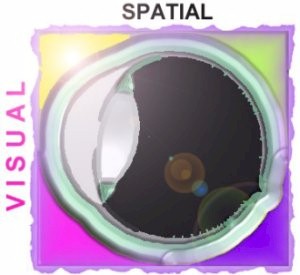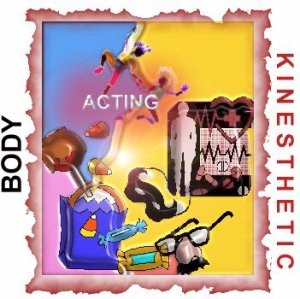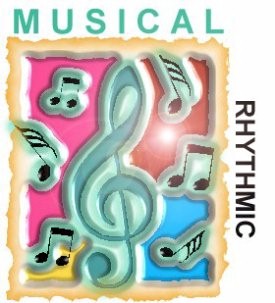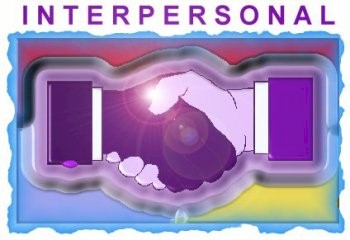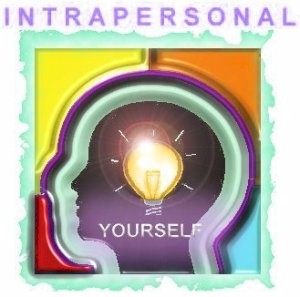| Multiple intelligences |
|
The bulk of this document describes Gardner's theory of Multiple Intelligences. At the end of the description, there is a section on how this applies to educators and, particularly, to assessment. Lastly, there are examples of different spelling activities, based on the different intelligences. Skim through to find the parts of the document which are likely to be most useful to you. As you read, remember that this theory describes
different intelligences as if they are different categories, in
order to provide a model for us to understand the whole person.
In reality, each person is a unique blend of characteristics, and
uses their This site is being used with the kind permission
of James Burton.
Intelligence Some theorists believe believe that intelligence is a basic ability that affects performance on all cognitively oriented tasks. Consequently, an "intelligent" person will do well in computing mathematical problems, in analysing poetry, in taking history essay examinations, and in solving riddles. Evidence for this position comes from correlational
evaluations of intelligence tests. Multiple Intelligences Howard Gardner has proposed a "theory of multiple intelligences" in which he suggests that people possess at least seven (eight since 1997) different forms of intelligence. He claims that the capacity of individuals to acquire and advance knowledge reflects the priorities and opportunities that society presents in a cultural domain. In this framework, intelligence is seen as a flexible, culturally dependent construct and as such it reflects a social constructivist perspective. Each of the seven intelligences, listed below, are characterised by core components such as sensitivity to the sounds, rhythms, and meanings of words and capacities to discern and respond appropriately to the moods, temperaments, motivations and desires of other people. An example of this is:
Gardner's own definitions of the Intelligences are seen below :-
1.Linguistic intelligence is the capacity to use language, your native language, and perhaps other languages, to express what's on your mind and to understand other people. Poets really specialise in linguistic intelligence, but any kind of writer, orator, speaker, lawyer, or a person for whom language is an important stock in trade highlights linguistic intelligence.
2. People with a highly developed logical-mathematical intelligence understand the underlying principles of some kind of a causal system, the way a scientist or a logician does; or can manipulate numbers, quantities, and operations, the way a mathematician does.
3. Visual spatial intelligence refers to the ability to represent the spatial world internally in your mind--the way a sailor or aeroplane pilot navigates the large spatial world, or the way a chess player or sculptor represents a more circumscribed spatial world. Spatial intelligence can be used in the arts or in the sciences. If you are spatially intelligent and oriented toward the arts, you are more likely to become a painter or a sculptor or an architect than, say, a musician or a writer. Similarly, certain sciences like anatomy or topology emphasise spatial intelligence.
4. Bodily kinaesthetic intelligence is the capacity to use your whole body or parts of your body--your hand, your fingers, your arms--to solve a problem, make something, or put on some kind of a production. The most evident examples are people in athletics or the performing arts, particularly dance or acting.
5. Musical intelligence is the capacity to think in music, to be able to hear patterns, recognise them, remember them, and perhaps manipulate them. People who have a strong musical intelligence don't just remember music easily--they can't get it out of their minds, it's so omnipresent. Now, some people will say, "Yes, music is important, but it's a talent, not an intelligence." And I say, "Fine, let's call it a talent." But, then we have to leave the word intelligent out of all discussions of human abilities. You know, Mozart was damned smart!
6. Interpersonal intelligence is understanding other people. It's an ability we all need, but is at a premium if you are a teacher, clinician, salesperson, or politician. Anybody who deals with other people has to be skilled in the interpersonal sphere.
7. Intrapersonal intelligence refers to having an understanding of yourself, of knowing who you are, what you can do, what you want to do, how you react to things, which things to avoid, and which things to gravitate toward. We are drawn to people who have a good understanding of themselves because those people tend not to screw up. They tend to know what they can do. They tend to know what they can't do. And they tend to know where to go if they need help. 8. Naturalist intelligence designates the human ability to discriminate among living things (plants, animals) as well as sensitivity to other features of the natural world (clouds, rock configurations). This ability was clearly of value in our evolutionary past as hunters, gatherers, and farmers; it continues to be central in such roles as botanist or chef. I also speculate that much of our consumer society exploits the naturalist intelligences, which can be mobilised in the discrimination among cars, sneakers, kinds of makeup, and the like. The kind of pattern recognition valued in certain of the sciences may also draw upon naturalist intelligence.
Below is an example of Spelling Activities based on Gardner's Multiple Intelligences-------------------- Reference: Much of the information on this page has been adapted from either McInerney, D.M. and McInerney, V. Educational Psychology: Constructed Learning (Second Edition) (Australia: Prentice Hall, 1998) or Woolfolk, A. Educational Psychology (Fourth Edition) (Englewood Cliffs, USA: Prentice Hall, 1990)
|
